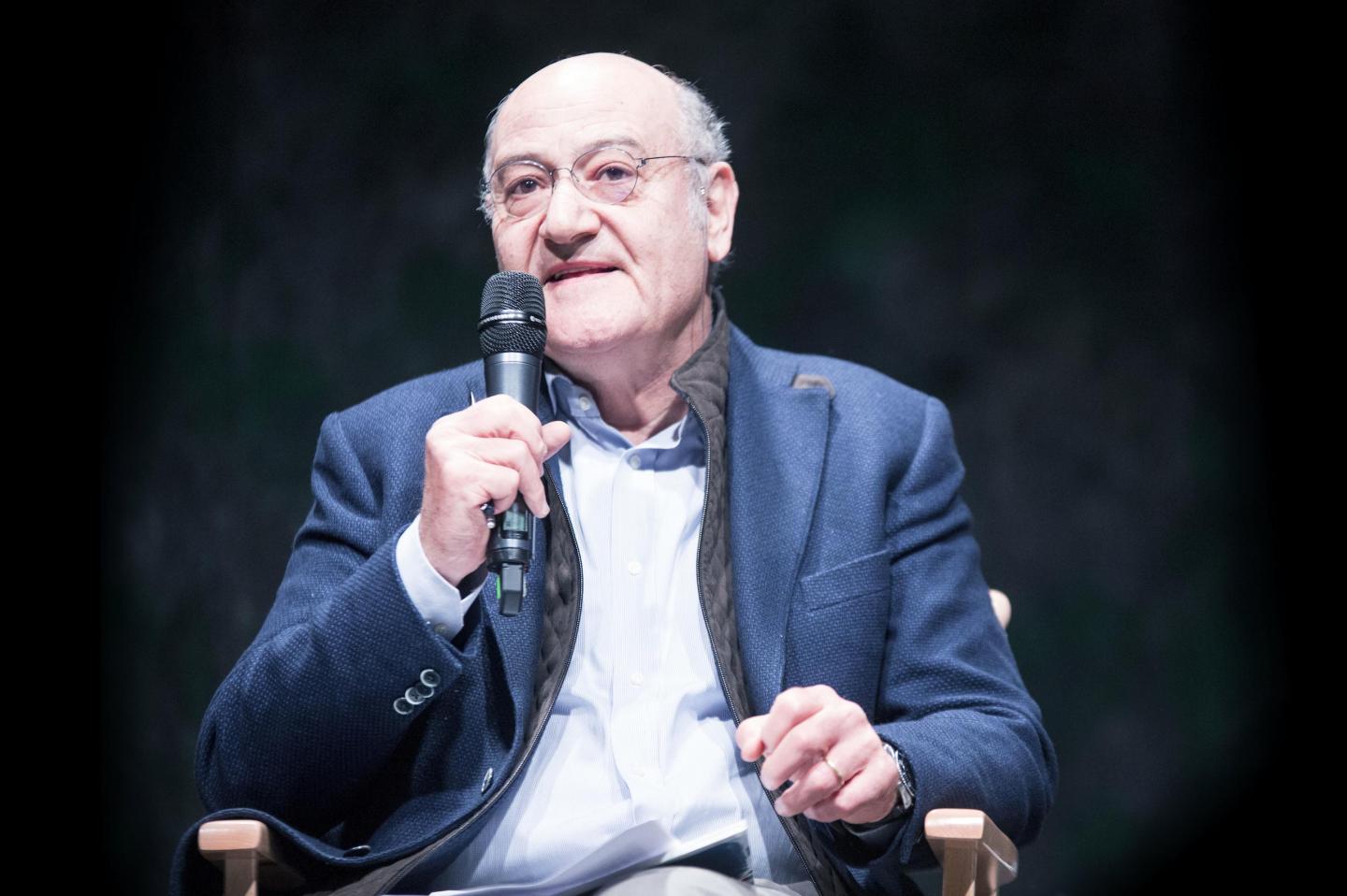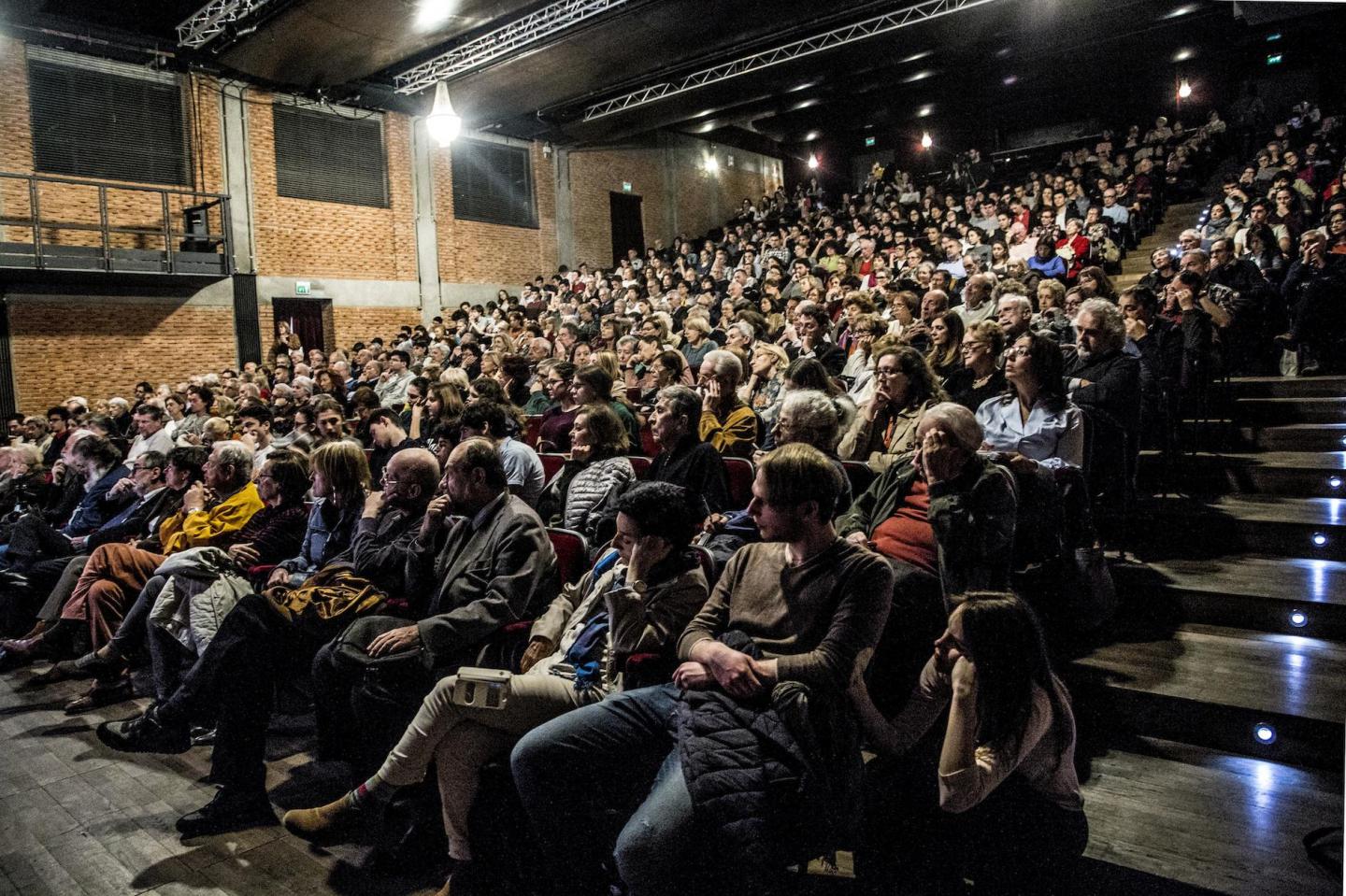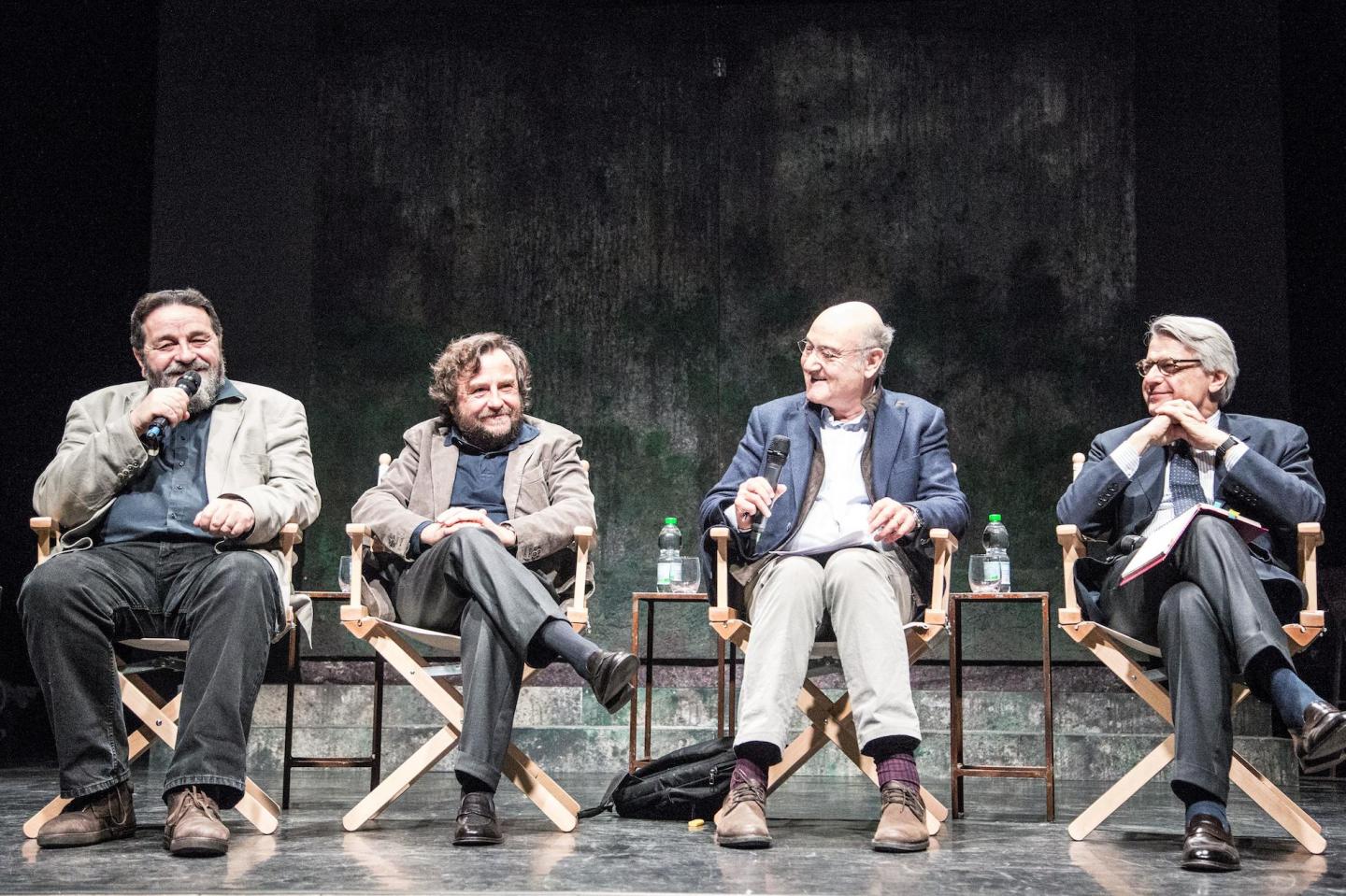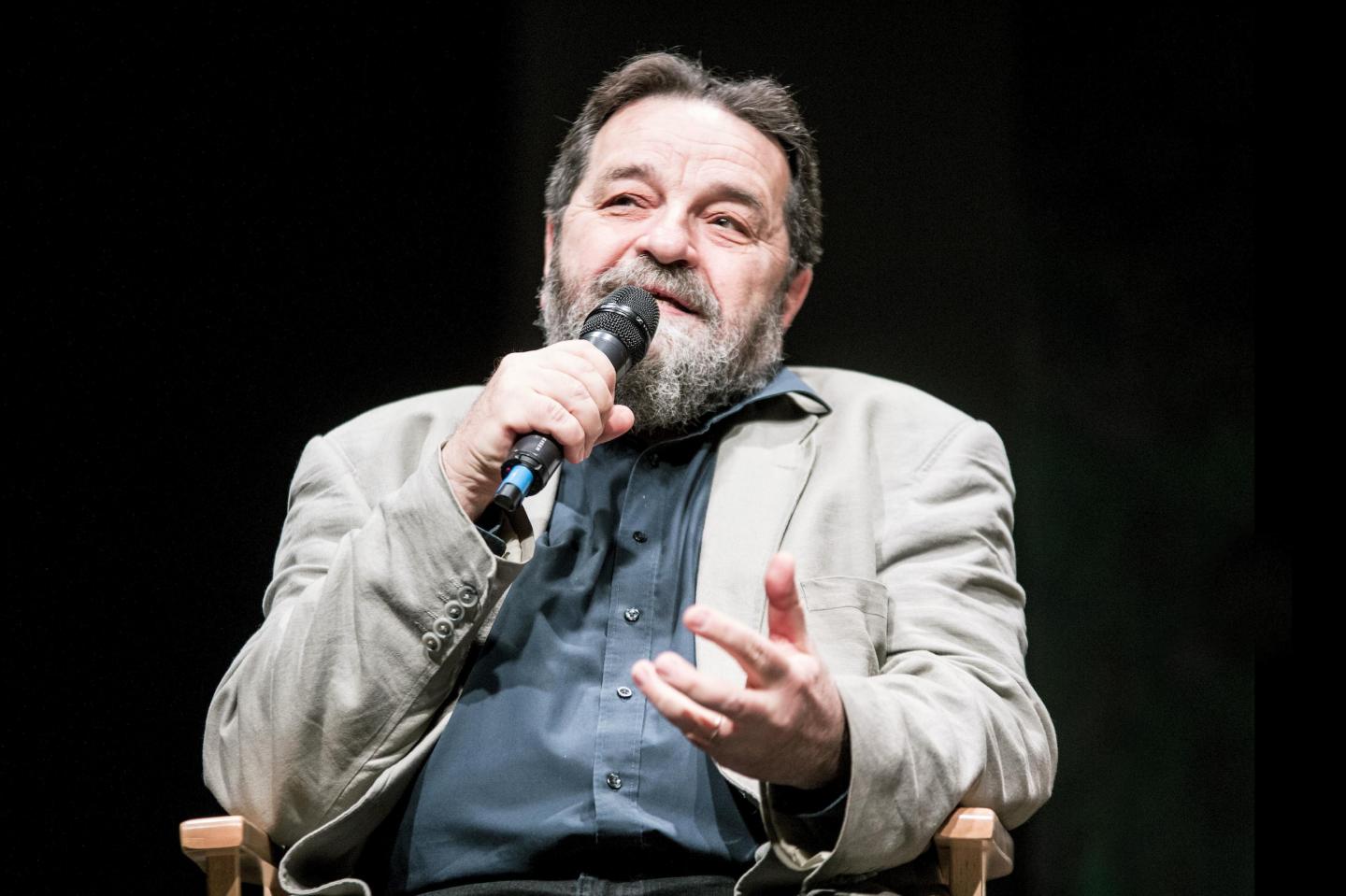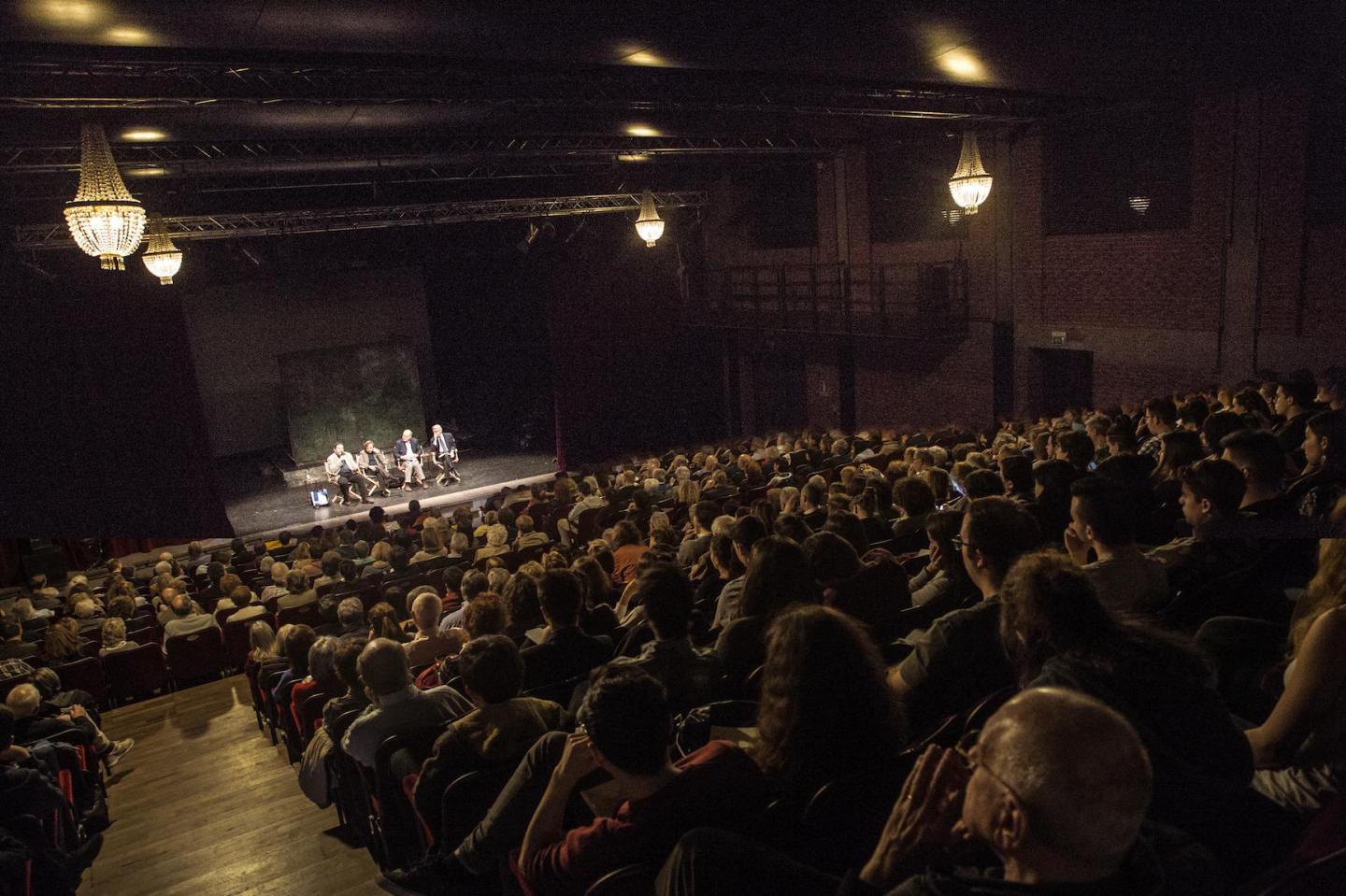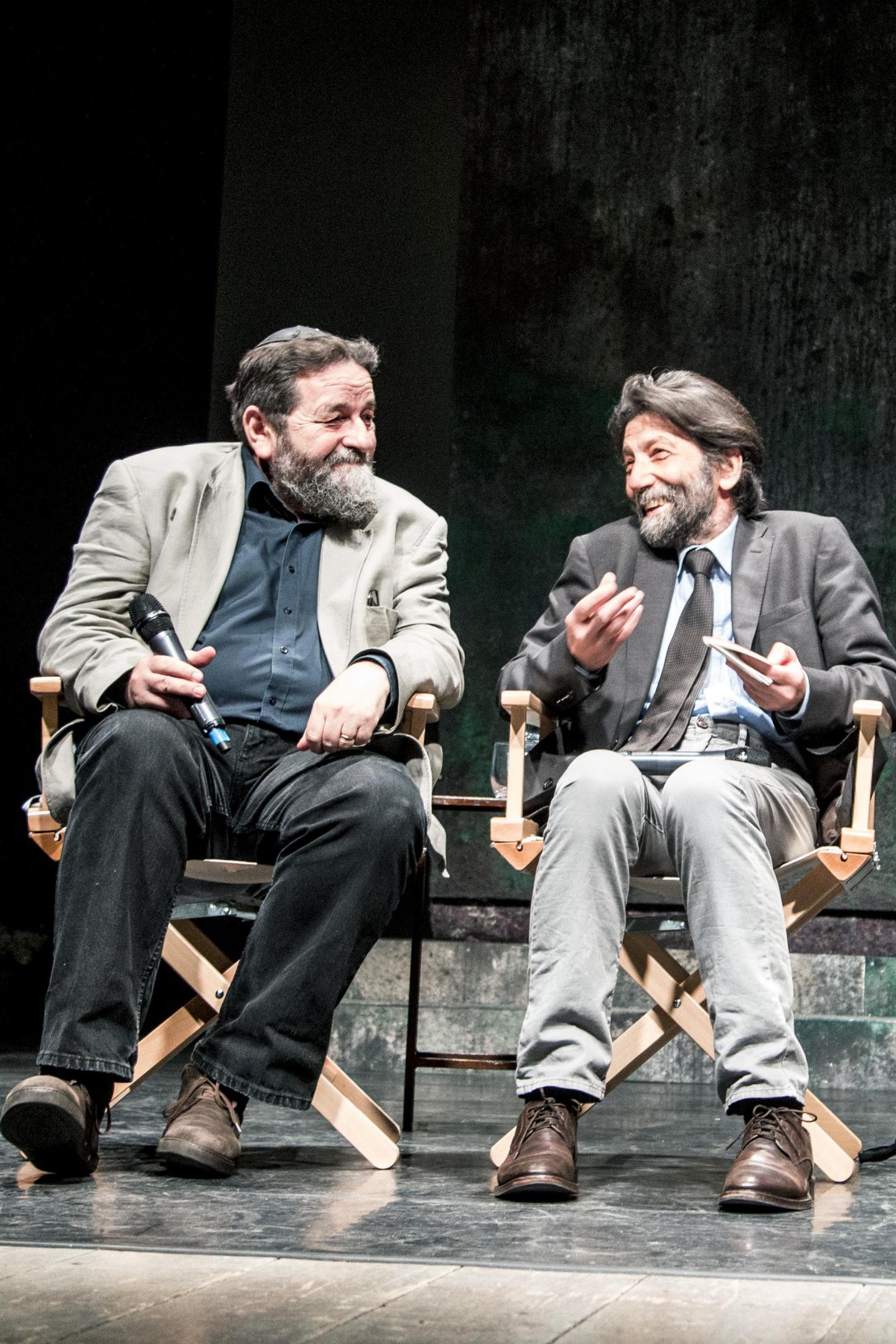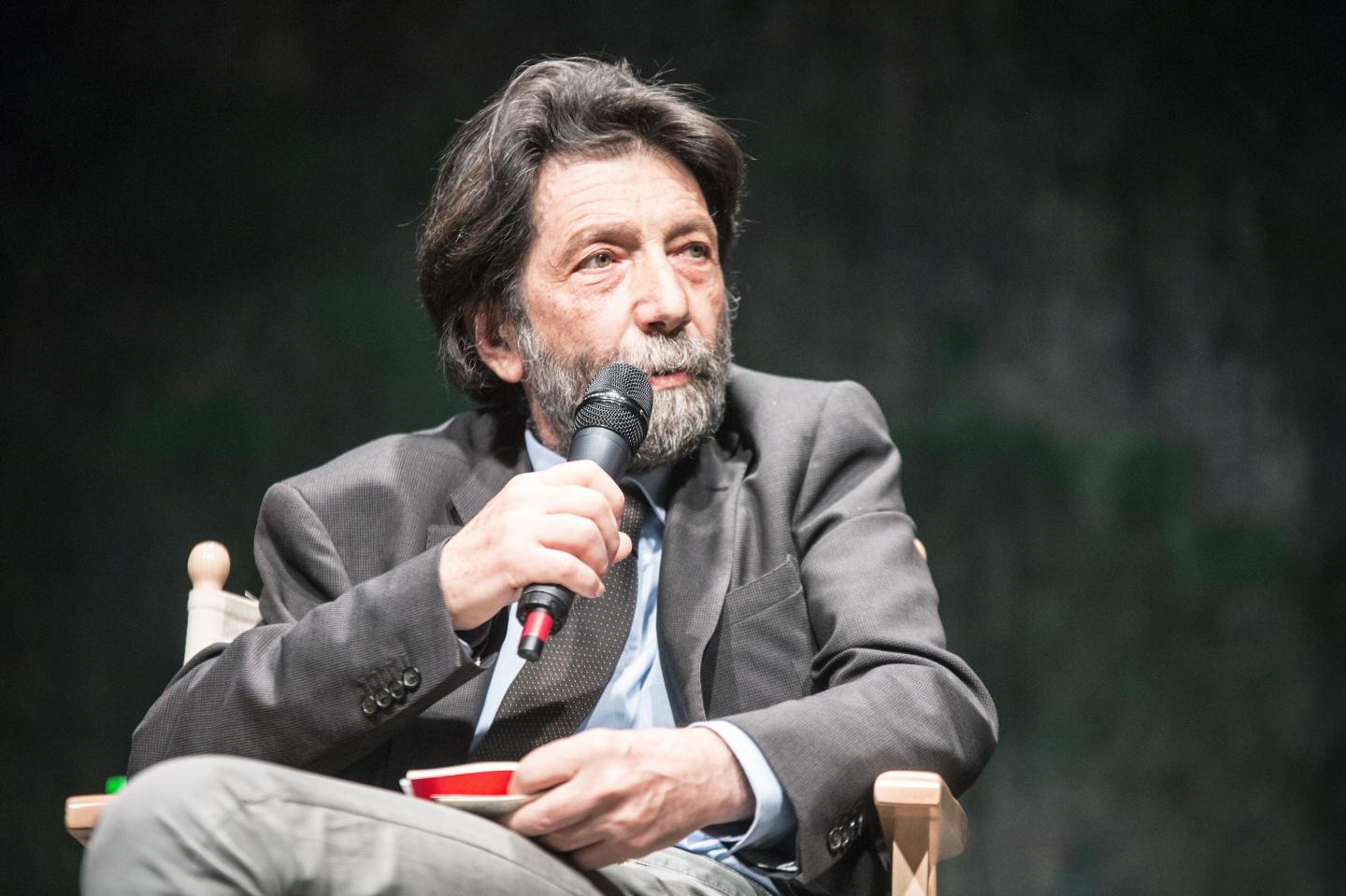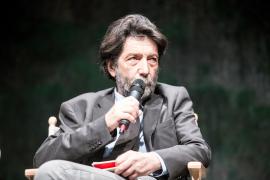
Massimo Cacciari at Franco Parenti Theatre
Following we publish the transcription of philosopher Massimo Cacciari's remarks during the third of four meetings of the series “The crisis of Europe and the Righteous of our time” organized by Gariwo in cooperation with Teatro Franco Parenti of Milan
We are experiencing a contradiction, whether we are aware of it or not. As Ferruccio De Bortoli pointed out, on the one hand, “if the idea of Europa fails to move people, who will follow us along this arduous path?” and on the other one, “we need to be very pragmatic”. I have never seen any pragmatic make people enthusiastic, but this is no criticism of Ferruccio, but rather our present reality. This continuous sway between a vague demand for values and an apparent need to avail ourselves of means and tools that are even very technical, to overcome this time of blatant crisis – which nothing can overshadow - of Europe, of the European political construction. We are experiencing this condition and we must be aware of this, we cannot express paradoxes and contradictions without stating we are doing so, because the first dimension of our art is the ruthless diagnosis. There exists no politics whatsoever without realism: Plato's Republic, too is a kind of perfect political realism.
There is no politics with a capital P – and the European political construction is such – which comes without myths. This has never been seen over history, and will never be seen. Politics with a capital P does really, structurally, need great narrations drawn from the past of a people – regardless of how they are created. All great peoples have narrated themselves, drawing from their own roots, and on this basis they have projected themselves into the future somehow.
All major political decisions have thus had their own myths, whereby a myth literally is a tale, a narration. The State of Israel has a great myth, without which it would have never been there.
Europe has ever since its beginnings denounce his huge weakness. Without being rhethorical about peace – how could the countries that had been ravaged during WW2 resume fighting against each other? - it is clear that France, Germany, Italy could no more make war against each other. To what purpose, with what goals? You make war for hegemony.
The great idea, around which all great European politicians divided themselves, was hence a different one: it was clear that we lived in a time of crisis of the national state. Two titans had emerged from the turmoil of WW2, and the fate that was being outlined was of the imperial kind. The small states either joined the two blocks – and if they wanted some independence from the two titans they should first build an economic area, as realism meant this, alheit of course within a framework of political unity – or they would be crushed between the rock of the great empire (and China was not there, yet) and the hard place of the resurfacing of nationalism, which was the outcome of the disruption of the empires.
And this is also the outcome, on a small scale, in our continent, where the crisis of political unity of this possible imperial space sparks populist and nationalist reactions.
This great political idea, however, could not be narrated in economic terms only, in a mixture between the myth of wealth and continuous growth, necessary but founded on a promise that could not be kept - as it was based on an unbalance in the distribution of wealth at a global level, absolutely in favor of the Western country and Europe, and above all on a monopoly on the market of raw materials – rather than on a pact between the political élites and the citizens, and the values.
But values are such only when they are widely accepted, as there is no abstract value. This economic kind of value has worked, but when it has fallen short the disruption has begun. Which could thus be the other founding myth? The problem was that those great statesmen had in mind an idea of European construction based on the pattern of the nation state. Politics, the political myth, was the construction of a European state. This was the outdated feature of their reasoning.
The economic myth is a necessary myth, as well as a value, so long as it works. The political myth, drawing back again from a powerful nourishment in the European history and culture – that was ignored, as everybody thought of a state, central , bureaucratic pattern in the least derogative sense of the word – was a union of nations.
A Europe, thus, which would be born by disrupting the state order that had led to two world wars. A Europe that would go back to the idea of nation – that has nothing to do with Cassirer's state myth, which had led to the world wars -, to the languages, cultures and faiths of Europe.
That, and not the extrapolation from the centralized state model - ought to be the starting point. That was the fundamental error, but it is wrong to say it was a mistake, because it was the product of what the founders of Europe had in mind. There could not be any different products.
Now it is no use to make pilgrimages to Ventotene, as Europe has been built the opposite way from what was written in that Manifesto. That should have been the starting point, toward a true European confederation.
That should have been the symbol, that would have had to be accompanied by what is somehow int Europe's DNA. How can Europe imagine itself as a determined physical space? Who can tell where Europe finishes? Europe was a lady who lived in Phoenicia, who was kidnapped by Zeus. Europe is no indo-european name, it has nothing to do with Greek or Latin. Have we Europeans not been the breachers of everything? Which border did we respect? In the flags of Charles V was the motto not Always beyond? How can we Europeans now say where we shall erect our walls? It is a dreadful change of DNA. We are experiencing a situation in which Europe is belying its features, its fundamental demons. The subject who breached everything, which crossed the border, which cannot say where it ends, now says itself closed. It is impossible, or rather, it is the sign of its end.
This is where we need to restart from. Are we strong enough to say Europe is this thing here, and now this going beyond will not be else than a going beyond that conquers others, but within this common space it is interchange, hospitality, recognition, Anerkennung? This is the only worth value. The economic value remains there, we will try to keep our welfare. We can still make this promise – twenty years ago everybody was European because they were sure about the narration telling that “with Europe we'll be better off and we will continue to be better off”. This is an actual discourse, a pragmatic discourse.
And then let us dismantle these ministries, this state centralism, let us move ahead toward a true confederation, starting from the meaning of nations, cities, the different identities – which are European identities, and thus welcoming and trasgressive. Let us start from here, and we shall see if this discourse can still work.
Europe should also always look justly at its own history. Europe is the land of great technical, science that changed the world, that great product of the European spirit that is the modern state, abiding by the rule of law. Of course, Europe has done all this, but has also meant fascism and Nazism.
And those were even more European than those who are anti-European now. They were quintessentially European, in other words they represented that demoniac instance that is there in the European spirit, for which Europe must be one and not a place where many people keep their name, language and traditions and confront each other.
This hegemonic idea is European, and Europe has many times taken it abroad, in its relations with the other civilizations and countries. Europe must report this attitude and deeply heal from it, but it does not show it has healed where its idea of political unity is a centralist one.
Europe is this: a desire of hegemony that buries, comprises, uniforms everything, up to absolute evil. Europe has been this, too, not an aberration, but rather something that has reached up to its extreme and ultimate point, has shown up in European history as the apocalypse of an evil, which is there in our history, and we must heal to its roots not only by denouncing its extreme epiphenomenon, without ever noticing that de nobis fabula narratur.
Values are constructed not only inventing concepts from our desks, but also critically remembering our history, the genesis of our present.
Values are something that is widely accepted and really “worth” as they are actually experienced in everybody's life. If this situation we are going through could be helpful to discuss all this with a critical strength, I believe we will be able to restart a European process, as we have no alternatives. We will never be able to compete with single states to tackle the issues we are confronted with. Current Eurpe has nothing to do with the one of the Belle Epoque, that had 50% of the worlds GDP, 28% of the population, and in which 5 powers were realistically able to compete for global hegemony.
Now there are no alternatives to creating a political unity. Europe is thus necessary, but this does not mean it is possible. It is up not to my generation, which has failed, but to the younger people who deem it necessary, to taking up the task of making Europe possible, as well.



